 By Rabbi Yair Hoffman for the Five Towns Jewish Times
By Rabbi Yair Hoffman for the Five Towns Jewish Times
The controversy has been raging on for close to two decades now.
And it has appeared at various venues. There is an Exxon Station on Route 9 in Lakewood, New Jersey – at the corner of Route 9 and Countyline Road.
There is a Sunoco station right past exit 5 on the Palisades Parkway in New Jersey, as one heads toward the George Washington Bridge.
And now, there are ten Starbucks in which the controversy has hit. [For those that feel the list is not exhaustive, there is also a 7-11 on Route 9 in Lakewood, New Jersey too, and a Coffee Bean in Los Angeles, California on the corner of Beverly and Alta Vista. ]
NON- JEWISH ESTABLISHMENTS AND CHOLOV YISROEL
These gas stations and coffee shops are often visited by coffee lovers across the Charedi spectrum, and the non-Jewish owners are catering to them by making Cholov Yisroel available to add to their coffee. Generally speaking, these gentile establishments are providing their Cholov Yisroel consumers with both the lowfat milk variety (usually with a blue cap and blue label on a half-gallon plastic container) as well as the regular variety (usually with a red cap and red label).
THE WARNING
Last year, a number of Chassidish Poskim published a warning that an open bottle of Cholov Yisroel in a non-Jewish establishment renders the bottle no longer Cholov Yisroel and thus forbidden according to halacha. Yet numerous Cholov-Yisroel-only Jews continue to consume the milk, assuming that it is quite remote that any gentile worker or owner might switch out the Cholov Yisroel milk with regular milk just to provide religious Jewish customers with “kosher” milk for their coffee. And now, with the announcement that ten Starbucks are now exclusively stocking “Pride of the Farm” brand Cholov Yisroel milk – the controversy is once again raging. This is not to say, by the way that Starbucks are certified kosher – they are not. It is just that if someone wants to drink their brewed coffee – Cholov Yisroel is now available.
THE PSAKIM
This author posed the question to a number of well-respected Chassidish Poskim who stated unequivocally that the milk is not kosher. These Poskim included Dayan Hershel Ausch, the Av Bais Din of Karlsburg [headed by Dayan Yechezkel Roth shlita, the Posaik of the Satmar Rebbe Rav Yoel Teitelbaum zt”l], Rav Yisroel Dovid Harpenes, a noted Posek in Williamsburg, and Poskim from Skver. Their rationale was that Cholov Yisroel requires a chosem – a seal, and that a] an umdanah (roughly translated as a compelling halachic assumption which can be used to form legal rulings) is not effective when a chosem is required and b] there is, in fact, no umdanah here because the gentile will always want to provide milk for his customers and will thus pour regular milk into these containers behind closed doors.
However, Rav Yisroel Belsky zt”l, when asked about the Route 9 Exxon gas station in Lakewood, ruled that it was unquestionably permitted. He explained that everyone knows that when one bottle of milk is poured into another bottle of milk that is outside it causes spoilage and no one would do that. Some, however, questioned whether or not workers at a gas station would be aware of this point.
This author spoke to another highly regarded litvisha Posaik who expressed his opinion that the milk would still be considered Cholov Yisroel whenever there is no “chashash chiluf – a concern of switching.” He disagreed with the idea that an umdanah is ineffective when a seal is required.
ANALYZING THE SOURCES
The operative chapter behind this raging controversy is found in the 108th chapter of the Yore Deah section of Shulchan Aruch which contains thirteen s’ifin or sub-paragraphs.
NEED FOR A SEAL
The first s’if (sub-paragraph) explains that meat or a piece of fish where the fins and scales were removed require two seals (chosmos) when sent through a non-Jewish intermediary or messenger. However, milk or cheese or other things that are only forbidden by Rabbinic law, require only one seal. This is the source in Shulchan Aruch that one seal is required to ensure that Cholov Yisroel is not replaced with regular store bought milk.
WHEN THE SEAL IS NO LONGER EXTANT
In s’if two the Ramah tells us that if the Chosem, the seal, is no longer extant – it is still forbidden only if a] there is a concern that he may have switched it and b] he derives benefit from having switched it. The Poskim who forbid the milk would respond that indeed there is a concern that he switched it in order to provide for his customers, and that there is a benefit in the owner making money on the sale.
TWO HEBREW LETTERS COMPRISE TWO SEALS
In s’if three, it is explained that the formation of two Hebrew letters is considered like two seals rather than one seal. In other words, we see that the idea of a seal is not a foolproof tamper-proof system of protection. A gentile who tries hard enough could feasibly forge two Hebrew letters. Yet the assumption is that he will not go through such extensive effort.
In s’if four we learn that, according to the Ramah, if the item was sent in a bag and the bag had a seal – it is not considered a valid seal. The seal apparently must be on the item on not on the outer sack.
WHEN THE BETTER ONES HAVE A SEAL
In s’if five we learn, in regard to a Rabbinically prohibited item, that if he recognizes that some of the products still retain their seal, and they are the higher quality ones – then the other ones are still considered kosher – since the gentile would have switched out the higher quality ones. We see from here strong evidence that an umdanah is, in fact, utilized even when there is a requirement for a seal.
S’if six tells us that the physical signs that an animal was slaughtered is not sufficient to be treated as a Chosem.
PUBLIC PLACE
S’if seven tells us that if the place in which the gentile was sent with the item is considered a place where the public passes – it is permitted. The reason is that the gentile will be concerned that he will be seen and he will be viewed as a thief. However, notes the Shulchan Aruch: Ideally, a person should not send food with a gentile without a seal.
This sub-paragraph is fascinating and is in all probability the most germane to the raging controversy under discussion. Some wish to permit the milk based upon the fact that if the owner or an employee switches out the Cholov Yisroel milk with other milk, it will be readily seen by passersby. Indeed the Taz and the Pri Chadash both write that even if the passersby are only gentiles – that gentile would be concerned that they would tell on him.
ARE THESE PLACES PUBLIC PLACES?
They also point out that, generally speaking, you can always look into these Starbucks because their construction is made of glass. The Palisades Sunoco Station is also open 24-7 as well as the Exxon Station on Route 9 in Lakewood.
NOT VIEWED AS A THIEF – BUT CAUGHT AS ONE
Those that forbid the milk could argue that there is a huge distinction between our case and that of the Shulchan Aruch. The Shulchan Aruch’s wording is that the gentile would be afraid that he would be “caught red-handed” and called a thief and hence – pounced upon and or jailed as a thief. This is a far cry from switching milk containers which would carry very little repercussions.
LAWSUITS ARE JUST LIKE BEING POUNCED UPON AS A THIEF
Some Rabbis have pointed out that the fear of being “caught red-handed” is a real one – particularly after the famous 2001 McDonald’s Corporation French Fry case – where McDonalds agreed to pay ten million dollars for misleading consumers about their French Fries for ten years. In 1990, after being pressured by the vegans, McDonald’s announced that its restaurants would no longer use beef fat in cooking French Fries and that only pure vegetable oil would be used.
But on May 1st of 2001, a lawsuit was filed in Seattle on behalf of two Hindus who didn’t eat meat and one non-Hindu vegetarian. The french-fry category of the official McDonald’s ingredient list made no mention of beef tallow or beef extract. They only listed potatoes, partially hydrogenated soybean oil, and natural flavor.
McDonald’s tried doing damage control by issuing a statement at the time of the lawsuit that said: “The natural flavoring consists of a minuscule amount of beef extract,” – but it was too late. They paid out ten million dollars.
Some Rabbis wanted to claim that Starbucks Corporation and perhaps the owners of the Route Nine Exxon and the Exit Four Sunoco are aware of the lawsuit against McDonald’s and would thus be very careful.
Others claim that they can still switch out the milk behind closed doors or behind the counter, and that most of the workers and managers are completely unaware of the lawsuit against McDonald’s – and thus the distinction between contemporary times and the times of the Shulchan Aruch is still very valid.
ONLY AN EMPLOYEE?
There is also the opinion of the Isser v’Heter (22:7-8) that we are only discussing a servant or employee of the Jewish owner and not just any gentile – where it would clearly be forbidden. Although the Shach and the Toras Chatas disagree with the Isser v’Heter, it could be that they would agree with him in regard to this case where there is no Jewish neighborhood per se (Indeed, the Toras Chatas specifically limits the leniency to a Jewish neighborhood).
THE WAY STARBUCKS WORKS
Inquiries at a Starbucks reveals some interesting facts. The Starbucks are corporate owned – they are not franchises. The Starbucks that have Pride of the Farm Cholov Yisorel carry no other milk. If a Starbucks runs out of any product they are instructed to go to another Starbucks to get that product. They would not get that product from another locale, and there is no incentive for them to do so whatsoever. It would seem, however, that they may go the closest Starbucks in such an event and if that other Starbucks is not Cholov Yisroel – there may perhaps be a concern. However, rarely if ever would a Starbucks actually run out of milk.
CONCLUSIONS
It seems to this author that an Umdana certainly would work to permit the milk even if there was no Chosem – a seal.
Let us also go back to Rabbi Belsky zatzal’s point – that people do not pour milk from one container to another. It seems that this information is actually taught in state-mandated health courses in which one employee and or owner of any establishment that deals with food and refrigeration must attend.
It would seem also that if there is ample Cholov Yisroel in the refrigerator there would be an umdana that the milk was not, in fact, switched. The fact that the Ramah says in S’if two that it is only forbidden if there is a financial benefit and an incentive would make it hard to imagine that a gentile employee would care enough to risk spilling and spoilage and the extra effort for a mere sale of a few cups of coffee.
True, S’if zayin states that ideally one should not send milk without a Chosem, but it is this author’s conclusion that the milk of exit 4 and of Exxon Route Nine still remains Cholov Yisroel – it is just not l’chatchilah.
It also seems to this author that the Pride of the Farm Cholov Yisroel milk in the ten Starbucks would not be a lack of a lechatchila either. There are so many other umdanahs associated with the Starbucks operation that an open Cholov Yisroel container in one of these ten stores would be considered full Cholov Yisroel.
Of course each person should consult his or her own Rav, Posaik or Dayan and not rely on the conclusions found here.
One should also note that some of the Starbucks actually wash some of the pots with non-kosher. This is also not ideal and often forbidden. The brew baskets of the plain coffees are generally not washed in this manner, however and even if they are – it does not present a problem (see an extremely learned CRC document on Starbucks written in 2011 by Rabbi Sholem Fishbane and Rabbi Dovid Cohen).
The author can be reached at [email protected]
Attention Readers: The seventh volume of Not Your Usual Halacha has just been released. The author’s books, including the Not Your Usual halacha Series, Hilchos Shabbos, Hilchos Meuzah, Hilchos Kashrus can be purchased at amazon.com


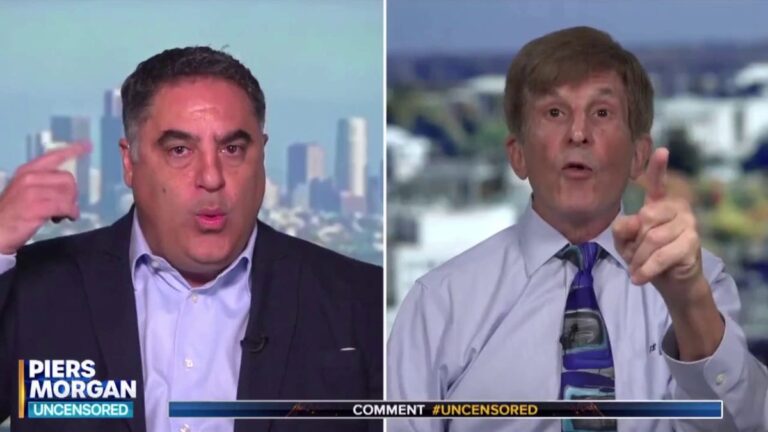

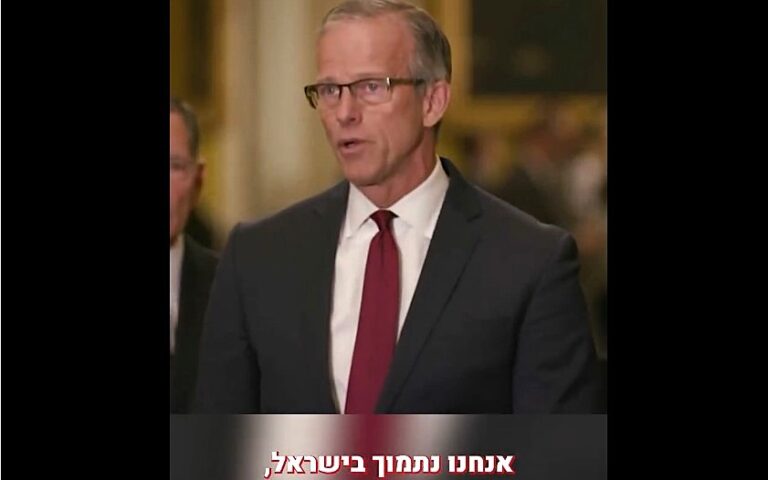


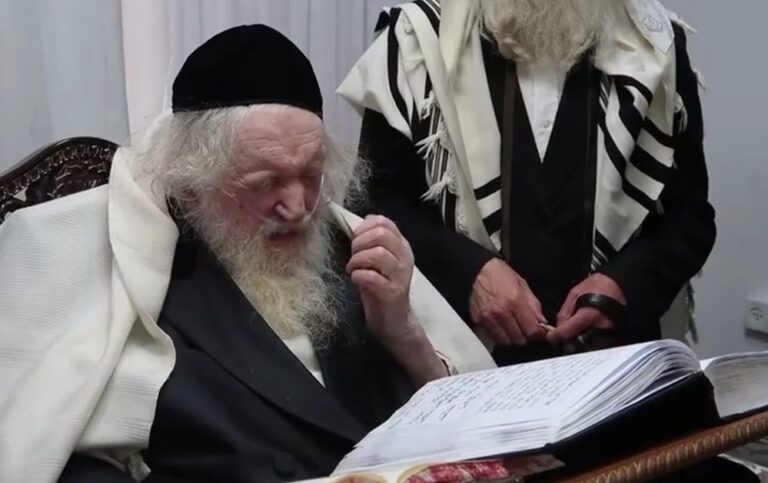
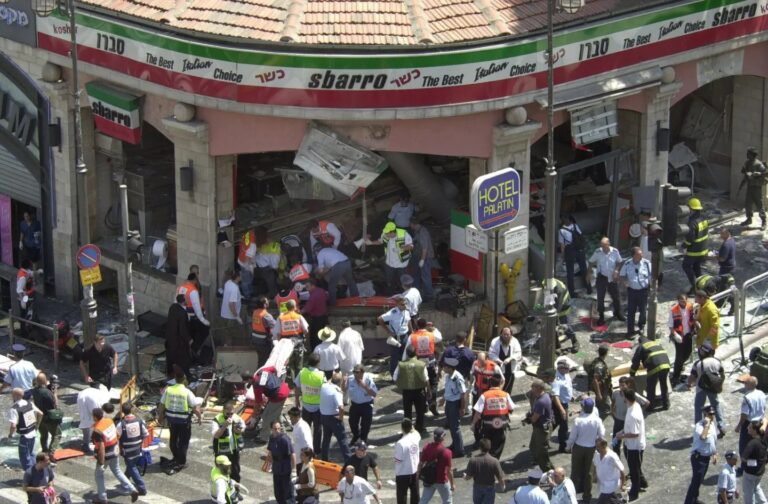
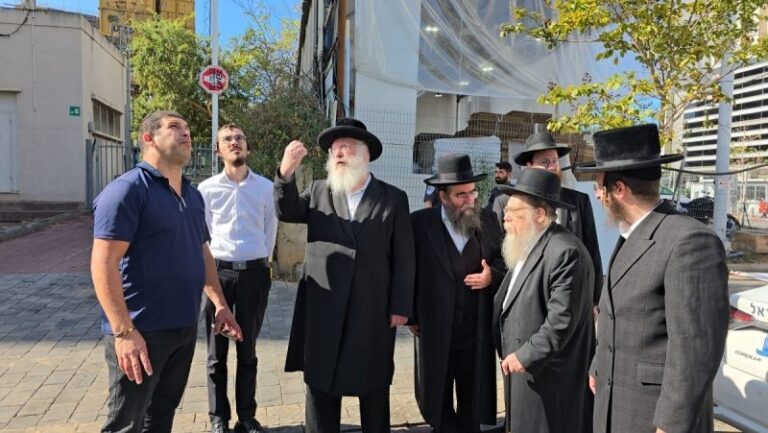

27 Responses
A brilliant piece of investigative journalism. Well researched, thought out, concise and thorough. You broke it down and laid it out very well. This is indeed very informative and relevant. Thank you very much.
Takeaway from R’ Hoffman’s elegant exposition of the inyan…probably OK if you are not too machmir but better to learn to drink your coffee black. You won’t miss the calories or fat, will learn to really enjoy the unadulterated taste of good coffee and won’t have to stay up at night worrying about having inadvertently consumed cholov stam.
Raging controversy?
If your Rav paskens no, it is no. If he paskens yes, it is yes. It is of no consequence to me what your Rav says, when I ask my own Rav.
The bigger issue at hand is the idea that when “a number of chassidishe poskim” issue a warning it suddenly becomes the psak for everyone.
Or you can carry your own milk with you with one of those “hot/cold” bags.
The other (underlying) difference between the Chasidishe and Litvishe Poskim on this matter has to do with how Cholov Yisroel is viewed int he first place. Most litivishe poskim use Rav Moshe’s psak to view Cholov Yisroel as a chumrah. Most chasidishe poskim view Cholov Yisroel as a necessity and all other milk as Cholov Akum, and treif.
I did not have the time to read this entire article in detail yet, but would like to make a couple of points.
Most importantly:
The article ends off with a quote based on the cRc “The brew baskets of the plain coffees are generally not washed in this manner, however and even if they are – it does not present a problem”
However, this is simply not true. I have read the cRc articles, along with their updates. They clearly state the opposite, and lay out the case to PROHIBIT even the plain coffees at most Starbucks. And so does the Star-K in their article about Starbucks. They actually put out a statement when Starbucks began using the Pride of the Farm milk warning people about this.
And another point: I am not sure if I understand the quote from Rabbi Belsky zt”l about the milk spoilage. That might be true if you store the milk in the new container long term. But in these shops, the milk gets used pretty quickly. It’s not probable that the milk would spoil any faster when poured into a new container. Additionally, I have personally poured milk from one container to another, and did not notice any spoilage.
One more point: It is reported that in the Five Towns, there was a Deli (which has been knocked down and replaced by a Frum store) which used to carry Cholov Yisroel milk for their coffee. They were once caught red-handed pouring non-Cholov Yisroel milk into the Cholov Yisroel container.
To No. 6
For someone who lacked the time to read the article, yet was able to post a reply nearly as long, I’d simply note that there is nothing in the article (had you read it) that fundamentally deviates from what I think you were trying to say. As to the Chassidish/Litvish hashgacha issues, its become more of a metaphysical question. Many (albeit not all) yidden view a Chassidish hashgacha as the gold standard. Others disagree. However, the issue here as the poster notes is that Chassidim simply don’t hold by R’ Moshe’s psak that there is no need to adopt the chumrah of cholov yisroel. That view has been affirmed by Rav Tendler, shlita, who certainly understands the technical issues better than must about any other rav who addresses these issues.
To #5: You need to bone up on an inyan before posting about it, to avoid sounding like an am ha’aretz. Cholov Yisroel is an ikkar ha’din, not a chumra, says the shulchan aruch, and no posek, including Rav Moshe, views it as a chumrah.
Rav Moshe had the plaitzos to pasken a kulah, limited to the USA, and at a time when cholov yisroel was often hard to get or unaffordable. There are those who hold that this kulah still applies today. But those who don’t are not being “machmir”, they are doing exactly what the shulchan aruch says to do!
To No. 8
I won’t be offended in being called an Am Ha’aretz. I was using the standard jargon that people use.
Of course, Cholov Yisroel is not a “Chumrah”, and is an ikkar hadin. I was, of course, referring to the status of “Cholov Stam” in the US. If you pasken like Rav Moshe, then it is technically a chumrah to only use Cholov Yisroel, which would allow some more room for leniency.
My point was, of course, that among chasiddishe poskim who do not, and never did, hold like Rav Moshe’s kulah, the din remains as listed in Shulchan Aruch, and it is an issue of Issur V’heter.
ok some sanity to this discussion here. regarding r moshe psak i think the truth is in between no 5 and no 8 closer to no 8 though. one thing is for sure if you read the teshuva of r moshe youll see that he never said “theres no reason to adopt the chumra” like no 7 said.
regarding the essential issue i agree with number 6 that r belskys psak needs clarification since i never knew that milk spoils faster when you change containers and i’m not sure these pakistani workers know that either. additionally this exxon on route 9 in lakewood you speak of was once seen mixing the milks. so call it caught red handed if you like whatever i think the psak needs clarification unfortunately he is no longer with us
Annonymouschochom: I believe that Rabbi Belsky Tzatzal was talking about milk that is outside of the fridge. Many of these small gas station convenience stores do not store the “open” milk in the fridge as they figure it will be used up in a few hours. If you pour from a fresh container into these “older” containers it may spoil faster.
Forgetting for a moment that the milk may not be cholov yisroel, does everyone know that even black coffee could be a major kashrus problem? In fact, it may even be NOT KOSHER due to the kaylim possibly being washed together in hot water with treif foods and other treif kaylim. This is even a problem with some black coffee on air planes.
lchoira even reb moshes psak might not be mattir the molk in starbucks, since they are not being checked if it comes from a cow
It Should be Muter because of a S’fek Sfey’ka. 1st Safek is that the retail store (Gas station) switched the milk in the container from Chalev Yisroel to Chalev Stam . And 2nd Safek is that even if the retail store did switch the milk to Chalev stam milk, you also have to assume that the farmer that provided the milk to the retail store switched his milk from Cows milk to Treif milk. We are not Choy’Sesh for a S’fek Sfey’ka and it should be Muter Li’Chadchila. (E.K.)
To #7 Gadolhadorah:
Did you read my comment?
I did not mention a word about any chassideshe hashgochos, I quoted the cRc Chicago who are not Chassidesh, and did the most extensive research on Starbucks to date. I also quoted the non-Chasidic Star-K. This article strongly implied that they say there is no kashrus issues with plain black coffee at Starbucks. However, if you read their reports, there IS a kashrus issue with even the black coffee at Starbucks.
This is not a Cholov Yisroel issue.
The rest of what you wrote has absolutely nothing to do with my comment.
Ms. Pompedorah; Did you ever learn through a teshuvah of Rav Moshe zt’l? I should hope not unless you’re planning to be a rabbah! In that case you shouldn’t be telling the public or anyone what his supposed psak is. He clearly told those who asked that his heter was for those places where they wouldn’t have any milk to drink whatsoever!
To #12 eliesty:
That is not how S’fek Sfey’ka works.
If Cholov Stam is prohibited, it is not treated as a safek. It is true taht its misght be a Rabbinic decree as a result of a safek, but now it is not a safek anymore. The Rabonon prohibited it. Like bishul akum and the like. It is not treated as a a safek at all.
uncle ben
who is ms pompedorah? i dont see her anywhere on this post
It’s been said in the name of Reb Yisroel Aidelman, a close confidant of both Rav Moshe zatza”l and יבדלו מחיים לחיים his son Rav Dovid that once, at a bris that Rav Moshe was at, he poured the milk on the table into his coffee. And when someone leaned over and told him that it was NOT חלב עשראל he quickly spot it out! (I’m not sure if he said that he also rinsed out his mouth!) So clearly, as many posted here, Rav Moshe rendered his p’sak at that time – early 1960s – and likely it was for that time when חלב עשראל was not available outside of greater Brooklyn and Monsey! Most certainly today his p’sak would look altogether different.
Besides, there’s so much חלב ישראל and חלב ישראל products today, why would anyone look דוקא to use non – חלב ישראל. שולחן ערוך and רמ”א are so, so clear about it!
Uncle Ben: Who are you referring to?
Chicago Maven: I heard from a poseik in Brooklyn that since the cleaners that they use are pogeim their is no issue with black unflavored coffee.
who cares i like my hershey choc
Yaapchick: Either R’ Dovid or R’ Reuven have outright denied this story.
There is another “story”that R Moshe once picked up a container of milk and put it back down. Someone asked him if there was a problem with the milk and R’ Moshe replied that the container was empty.
ANON21 & iacisrmma;
Referring of course to the pompously and ignoramusly named “gadolhadorah”. Thought that would be obvious.
To # 20 iacisrmma:
If you would read the research done on Starbucks, you would know that Starbucks does not use any soap in their dish-washing process. There is no soap to be poigem.
Its just interesting to me how people treat psak halachah from R’ Moshe in different ways. For instance, regarding chalav stam, the CY crowd posits that the psak was only “for that time or circumstance” i.e. when CY was difficult to obtain and the alternative was to do without, but now that it’s easy to obtain, he would’ve ruled differently or his kulah is no longer allowed. But at the same time regarding an eruv for Flatbush, despite having actual numbers regarding Ocean Parkway (that ever troublesome road) that (in theory) would’ve resulted in R’ Moshe’s allowance of an eruv, the same crowd shys away from such a stance and insists that we keep the status quo of his prohibition of the construction of a Flatbush eruv. So which is it? Do we revisit his answers and change/modify it when we have new information, or do we firmly keep his exact words? Or do we pick and choose when we analyze the circumstances of his rulings and then see if they’ve changed and proceed from there?
I would comment but I don’t have that much free time for such important issues. Stop drinking coffee!! You drink this offensive odor maker and go out in public and talk to others. What ever happened to בן אדם
OK some reality check
1. #20 Starbucks uses Hobart LXI and LXE dishwashers in every store they have soap hooked up automatically. The cRc Chumra is based on a Chazon Ish kashrus agencies are makpid on GENERALLY however many Rabbonim /poskim are not convinced. Hence the commenter’s Rov allowing brewed coffee in Starbucks
2. #5 Rav Dovid Feinstein Shlit”a himself (who was called by Rav Elyashiv Zatza”l the Mofes Handle) is NOT MAKPID on Cholov Yisroel
3. #7 even according the stringent agencies starbucks cant be so trief as Star K allows when traveling